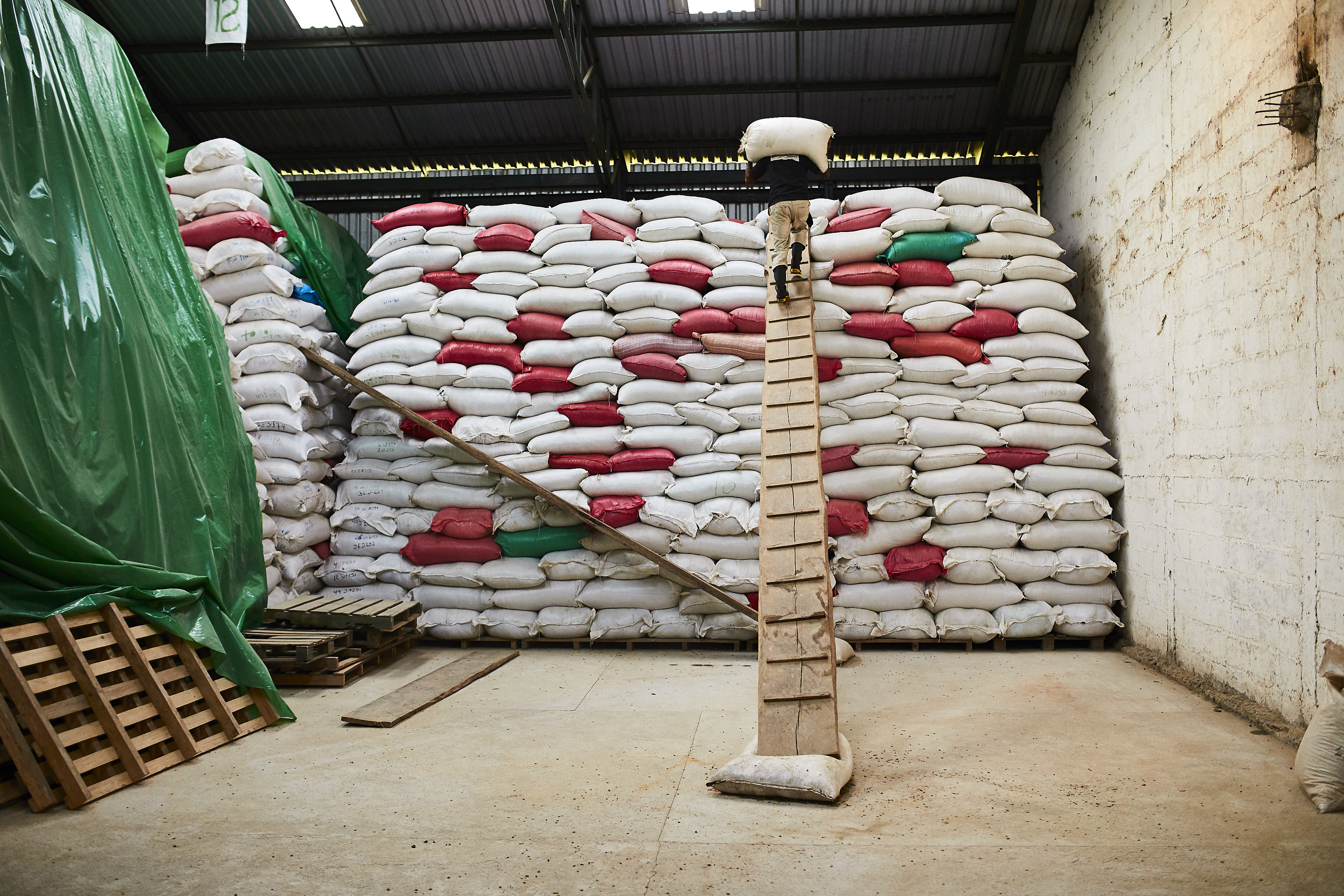What does a coffee exporter do?
A coffee exporter plays a central role at origin, acting as the bridge between producers and the international market. Their responsibilities typically include:
- Sourcing coffee from producers, cooperatives, or washing stations
- Grading, milling, and preparing coffee for export
- Managing logistics, documentation, and compliance required for international shipping
- Ensuring quality control protocols are followed prior to shipment
In many cases, exporters work closely with importers or direct trade buyers to align on quality expectations, pricing structures, and delivery timelines.

Coffee importer vs coffee exporter
A coffee exporter is based in the producing country and must operate through a locally registered company with the necessary licenses and permits. Their focus is on preparing coffee for exportmilling, sorting, quality control, government approvals, and shipment preparation.
A coffee importer operates closer to the destination market. Importers handle customs clearance, warehousing, financing, quality follow-up, and customer service for roasters. While the roles are distinct, some companies operate across both sides of the supply chain.
Quality-focused importers often stay closely involved at origin, working directly with cooperatives, farmers, or washing stations to build long-term relationships and support quality development. Broadly speaking, exporters focus on the origin side of the supply chain, while importers focus on getting the coffee safely, consistently, and transparently into the hands of roasters.
Exporting Specialty Coffee vs Commercial Coffee
Specialty coffee scores 80 points or above on the SCA scale and is valued for flavour complexity, clean cups, and low defect counts. These coffees are typically carefully harvested, thoughtfully processed, and traceable to a specific farm, producer, or community. Exporters working with specialty coffee prioritize transparency around origin, processing, and pricing, often within long-term partnerships. Volumes may include microlots or curated blends, and custom processing methods, such as honey or anaerobic fermentation are common. Extra care in drying, milling, and storage helps preserve quality and supports higher prices that better reflect quality and production costs.
Commercial coffee generally scores below 80 points and focuses on consistency, volume, and price rather than flavour nuance. While harvesting methods vary by origin, post-harvest processing is typically standardized for efficiency and scale. Traceability is limited, lots are often blended from multiple sources, and pricing tends to follow commodity market levels. These coffees usually move through more transactional supply chains, with less emphasis on long-term relationships or transparency.

Where Nordic Approach fits in
At Nordic Approach, we primarily operate as a specialty coffee importer, connecting you and other roasters with traceable, high-quality coffees from across the coffee belt. A core part of that work is sourcing: long-term collaboration with producers, hands-on quality development, quality control at origin and cupping and selecting coffees ourselves.
Through our close relationships and teams at origin, we also take on parts of the exporter’s role, overseeing milling, managing shipments, and securing export approvals. Our focus on quality, transparency, and impact means being present throughout the production cycle, from harvest decisions to final shipment.
This hybrid approach gives us greater control over quality, deeper transparency, and stronger support for both producers and roasters.
.jpg)

